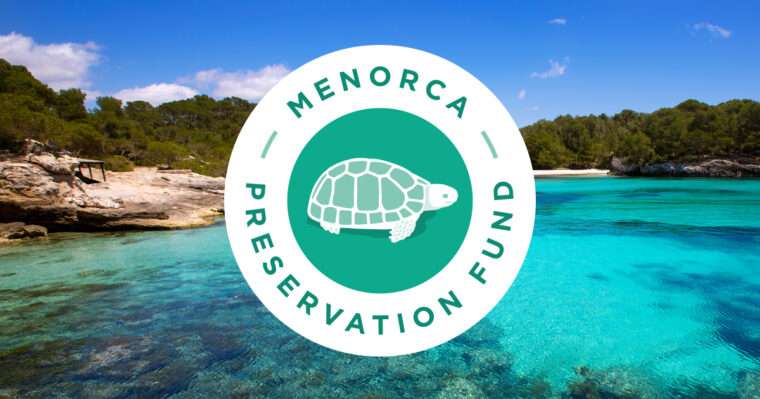Taking the first steps into philanthropy
Max Morgan spent a lot of time in Menorca during his early years, developing an affinity for the island. In 2017, he combined this passion with his own resources to become a founding member of the Menorca Preservation Fund (MPF). It was his first foray into charitable giving on a larger scale.
MPF is a foundation supporting local environmental initiatives and is part of The Conservation Collective network.
Quick facts
The cause
- Environment and conservation in Menorca
The giving
- Time (through the steering committee) and money
The takeaways
- Small organisations can still have an impact.
- Get involved sooner rather than later.
- Find like-minded people to work with.
The journey
Q: What is your professional background and what got you into giving?
A: My background is in finance, working for banks and brokerages, mainly in interest rate trading (I have since moved into the insure-tech space). I was lucky enough to be in a position, from the work that I did, to commit some money to a cause that I was passionate about – the Menorca Preservation Fund. I’d done a bit of charitable volunteering in the past and made a few token donations here and there, but this was the first time I’d done anything on any meaningful scale.
Q: What got you interested in supporting MPF?

A: To give you a bit of context, my family has had property in Menorca for years. I have a great love for the island, its natural beauty and its people, and I have spent a great deal of time there. For a while I had been wanting to give back in some way to this extraordinary place that had given my family so much.
From social circles on the island, I heard about this fund that was being set up, raising money to support ecological projects. I met the founders and told them I wanted to be involved as much as possible and that I had X amount of money to contribute. This led to my inclusion on a two-year term on the steering committee.
I was attracted because they were looking at the topic of environmentalism in a different way, a way that intrigued me. I thought the model of working with local stakeholders and supporting local champions would be effective and maximise direct impact. I was also attracted to the offer of working on a steering committee with capable people who shared my passion for the island. I thought being actively involved in strategy and project appraisal would be interesting, rewarding and provide opportunities for personal development.
Q: What is next for you in philanthropy?
A: I would love to return to MPF when opportunity allows, but it was good to take a moment to reflect on things. Doing so has opened my eyes to other projects and things to get involved with. On a less formal basis, I am currently providing a bit of finance and strategy help for a couple of friends who are working in the ethical fashion space.
Hands-on support
Q: How did you balance the demands of professional work and philanthropic commitments?
A: Something I really valued from MPF is that it wasn’t particularly onerous in terms of time. For a meaningful involvement, they asked that we contribute to six meetings a year and be able to communicate on an ad hoc basis should circumstances require.
Beyond this, they allowed you to get involved as much as you wanted, so depending on my particular workload at the time, I would be able to dedicate more time or less time to MPF. This was often led by where I thought I had most value to add, or on projects I was particularly interested in. The flexibility and understanding of the MPF team was very attractive and helpful in this regard. That, combined with the ability to be involved remotely, influenced my decision to join up.
Q: Did your professional skills help your work with MPF?
A: There were huge areas of overlap. MPF is growing from strength to strength but the budget wasn’t huge at the start, so we had to be very disciplined with finances and allocating resources. This was compounded by having a small donor base in the early days. The risk that things could suddenly fall apart if one or two donors pulled out was a real one – particularly when we had already committed funds to projects.
Coming from a financial background, I knew I could add value here, especially with things like funding appraisals. It’s very easy to get carried away when you’re a grant-maker and want to fund everyone, but hard decisions have to be made to protect the long-term security of the project. I believe my skill set helped us stay disciplined and assisted in developing strategy for more diversified funding. MPF has walked this line very well and they have now been able to expand their committee membership and generate additional income streams via local businesses.
Advice for philanthropists
Q: What advice would you give to those looking to get involved in philanthropy?
A: You don’t have to give millions and millions to have impact. Keeping it small can be incredibly rewarding and impactful and permit you to get involved sooner rather than later. To maximise your experience, look for organisations that will allow you to provide input and see the direct effect of your giving and involvement. That was a really big thing for me. And do your homework on what the organisation is and what you want to see happen through your support.
Overall, let your passion and your drive pull you forward. When you combine this with other people of the same mind, you can absolutely move the needle.